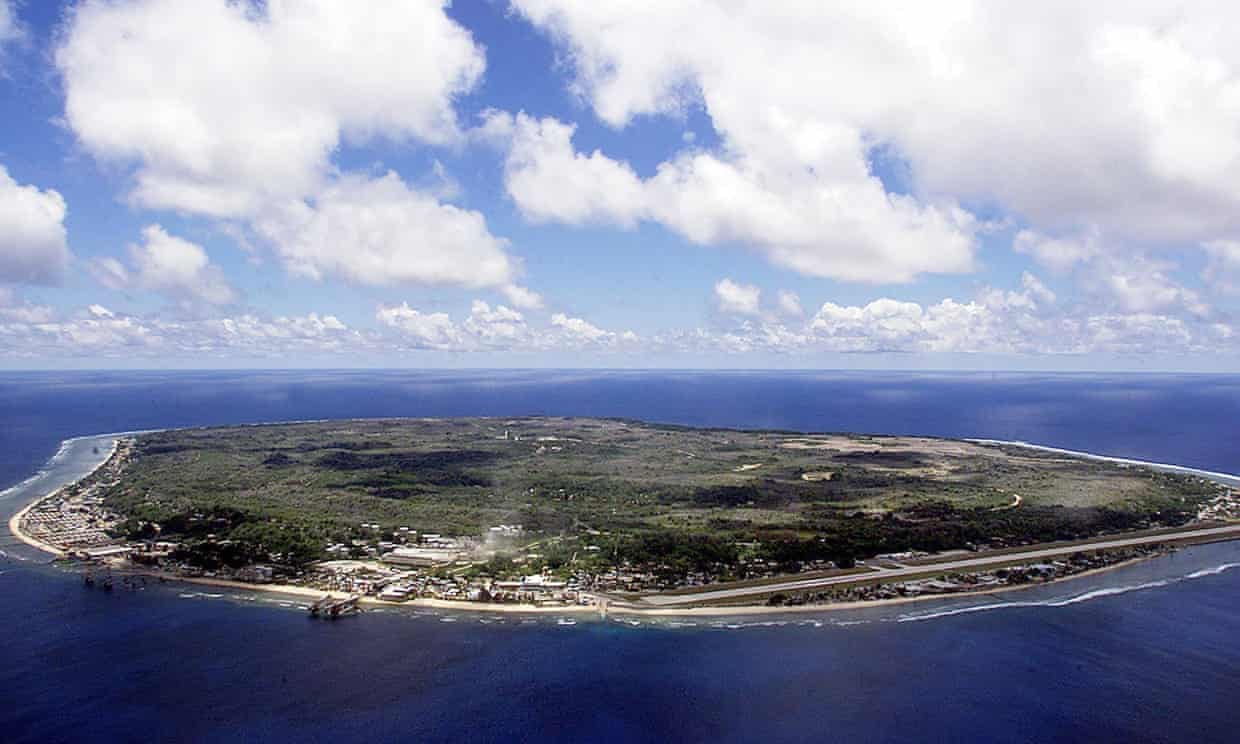
The last refugee, for now, has left the small, guano-producing state of Nauru. For a decade, the Pacific Island state served as one of Australia’s offshore prisons for refugees and asylum seekers, a cruel deterrent to those daring to exercise their right to seek asylum via the sea.
Since July 2013, 3,127 people making the naval journey to Australia to seek sanctuary found themselves in carceral facilities in Nauru and Papua New Guinea’s Manus Island, told that they would never resettle on the Australian mainland. Such persons were duly euphemised as “transitory persons” to be hurried on to third country destinations, if not returned to their country of origin, a form of vacant reasoning typical of a callous bureaucracy.
The wisdom here was that other countries would not only be more suitable for such persons, but keener candidates to pull their weight in terms of processing and accepting refugees. For the Australian Commonwealth, outsourcing responsibilities from protecting citizens to shielding vulnerable arrivals from harm, has become a matter of dark habit.
Many of those remaining refugees held on the Australian mainland are the subjects of acute care, and all await transfer to third countries such as Canada under its private sponsorship program, the United States, New Zealand or other destinations.
In the meantime, 80 remain in PNG. The situation there is marred by a fundamental legal peculiarity. In October 2017, the Supreme Court of Papua New Guinea found the Manus Island Centre to be both illegal and unconstitutional. (PNG, unlike Australia, has a constitution prohibiting violations of personal liberty, even for non-PNG nationals.) Its closure led to the removal of the detainees to various transition centres devoid of basic amenities, including water, electricity and medical support.
Both PNG and Australia proceeded to squabble over responsibility, despite the obvious fact that the latter exercises effective control over the facilities and those being held in them. Emilie McDonnell of Human Rights Watch deems it indisputable “that Australia bears primary responsibility for those in offshore detention under its policies and has an ongoing legal duty to find a durable solution.”
The offshore concentration camp system established and prosecuted by respective federal governments has become the envy for autocrats, populists and reactionaries the world over. Fact-finding missions have been made by European Union members states. The model is mesmerising officials in the UK. Its credentials of cruelty and suffering are beyond doubt: 14 deaths since 2012, marked by gross medical neglect, suicide and murder by overly enthusiastic guards. Spokesperson for the Refugee Action Collective, Ian Rintoul, suggested that the legacy on Nauru “will forever stain the record of both sides of Australian politics.”
The absence of any refugee inmates in Nauru’s detention facility does not herald its closure. Far from it: the Albanese government has, according to Federal Budget figures, promised to spend A$486 million this year on the facility.
The Department of Home Affairs continues to tersely state that the position of the government “on maritime smuggling and irregular maritime ventures has not changed. Any person entering Australia by boat without a valid visa will be returned or taken to a regional processing country for protection claims assessment. Unauthorised maritime arrivals will not settle in Australia.”
For anyone concerned about the welfare of such persons held in captivity, the department makes a feeble assurance: “All transitory persons in Nauru reside in community accommodation and have access to health and welfare services. Transitory persons have work rights and can operate businesses.” These people have evidently not been to the prison idyll they so praise. But not to worry, a wounded conscience could also be put to rest by the fact that there were “currently no minors under regional processing arrangements” on the island.
In Senate estimates, it was also revealed that the government would continue forking out A$350 million annually to maintain the Nauru facility as a “contingency” for any future arrivals. According to a spokesperson for the Department of Home Affairs, the processing centre was “ready to receive and process any new unauthorised maritime arrivals, future-proofing Australia’s response to maritime people-smuggling.” And so, old canards are recycled in their staleness and counterfeit quality.
Another unsavoury aspect to this needless cost to the Australian budget is the recipient of such taxpayer largesse. The Albanese government has an ongoing contract with the US prison company, Management and Training Corporation (MTC), which is responsible for running the facilities till September 2025 at the cost of A$422 million.
MTC has a spotty resume, though it trumpets its record as a “leader in social impact.” Impact is certainly not an issue, if maladministration, wrongful death, poor medical care and a failing performance in rehabilitation count in the equation. In 2015, then Arizona governor Dough Ducey cancelled MTC’s contract after a withering state department of corrections report into a riot at Kingman prison identifying “a culture of disorganisation, disengagement and disregard for state policies.” As a 2021 lawsuit filed in the District Court of the Southern District of California pungently alleged, MTC “is a private corporation that traffics in human captivity for profit.”
The very fact that MTC Australia advertises itself as a provider of “evidence-based rehabilitation programs and other services to approximately 1,000 male inmates in Australia” begs that old question as to why they need to oversee refugees and asylum seekers in the first place. But the answer is glaringly evident: anyone daring to make the perilous journey across the seas to the world’s largest island continent are seen as presumptively criminal, trafficked by actual criminals. Such a sickness of attitude and policy continues to keep the Australian political imagination captive and defiant before law and decency.



